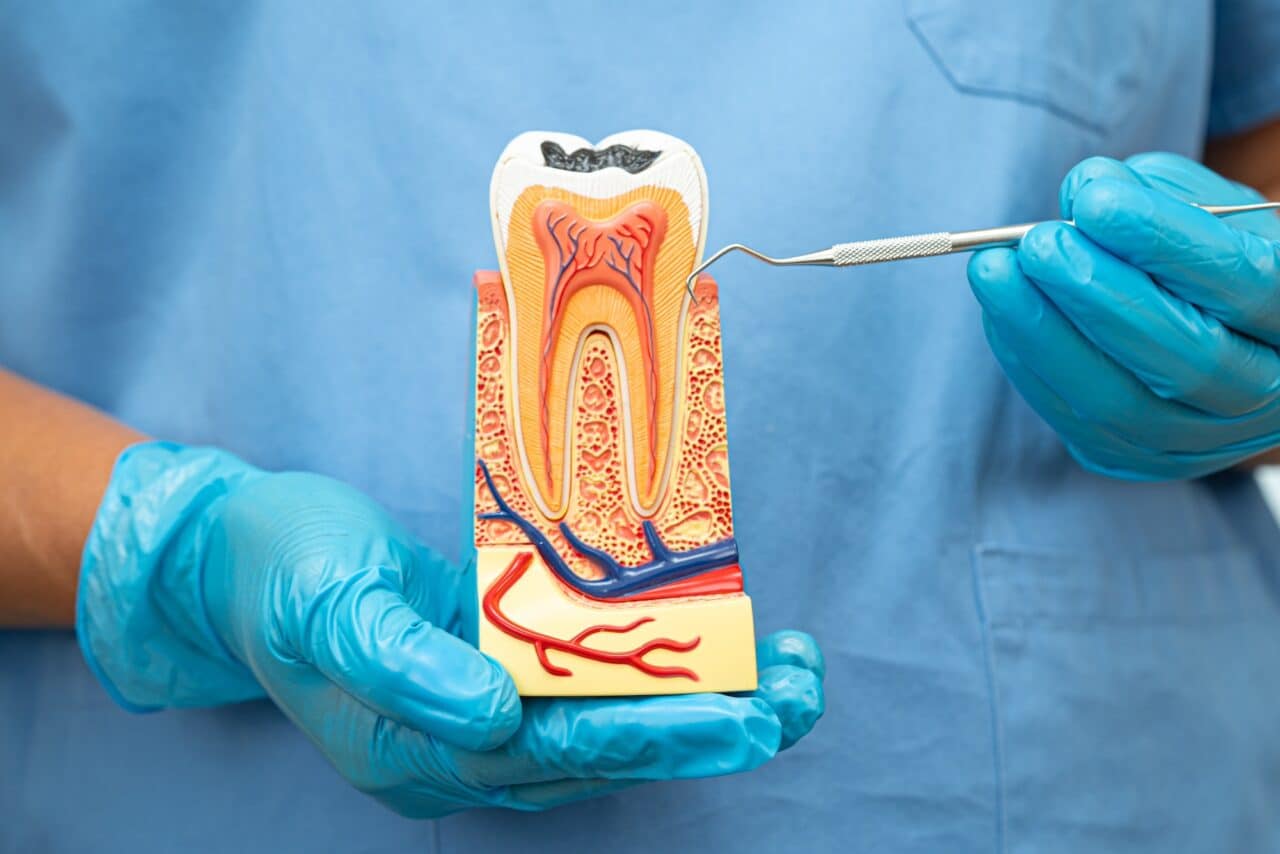When it comes to dental problems, understanding the difference between a root canal vs cavity is crucial for making informed decisions about your oral health. While both conditions affect your teeth, they require different treatments and have varying levels of severity. Whether you’re experiencing tooth pain or seeking preventive care, knowing the distinctions between these common dental issues can help you communicate better with your dentist and understand your treatment options for a root canal vs cavity.
What is a Root Canal?
A root canal is a dental procedure that removes infected pulp from inside a tooth. During this treatment, your dentist cleans and disinfects the affected canal to save your natural tooth. According to Windy City Family Dental, “A root canal is a procedure to remove the infected pulp from inside the tooth and clean and disinfect the canal.”
Root Canal Procedure Steps:
- Local anesthesia administration
- Removal of infected pulp
- Cleaning and shaping of canals
- Filling with biocompatible material
- Placement of permanent crown
What is a Cavity?
A cavity is tooth decay resulting from bacteria breaking down tooth enamel. As Putney Dental Care notes, “If left untreated, cavities can progress and reach the pulp of the tooth, necessitating more complex treatments like root canals.”
Common Cavity Causes:
- Poor oral hygiene
- Sugary foods and drinks
- Acid-producing bacteria
- Irregular dental checkups
Identifying Root Canal vs Cavity Needs
Your dentist may use X-rays and other diagnostic tools to determine whether you need a filling or a root canal.
Root Canal Symptoms:
- Severe, persistent toothache
- Sensitivity to temperature extremes
- Swollen gums
- Darkening of the tooth
Cavity Symptoms:
- Mild to moderate tooth sensitivity
- Visible holes in teeth
- Dark spots on tooth surface
- Pain when biting
Treatment and Recovery
Root Canal Recovery:
- 1-3 appointments required
- Mild discomfort for few days
- Full recovery within a week
Cavity Treatment Recovery:
- Single appointment typically
- Minimal recovery time
- Immediate return to normal activities
Frequently Asked Questions
How long does a root canal take?
A root canal typically takes 60-90 minutes per session, with 1-3 sessions required depending on complexity.
Can a cavity turn into a root canal?
Yes, untreated cavities can progress and infect the tooth pulp, necessitating a root canal.
Is a root canal more painful than filling a cavity?
With modern techniques and anesthesia, neither procedure should cause significant pain during treatment.
Conclusion
Understanding the difference between root canals and cavities is crucial for maintaining optimal oral health. While cavities can often be treated with simple fillings, deeper infections requiring root canals need more comprehensive treatment.
For professional dental care and expert diagnosis, visit The Dentist. Schedule your consultation today at our contact page.
Citations:
Windy City Family Dental
Putney Dental Care
Highbury Park Dental


